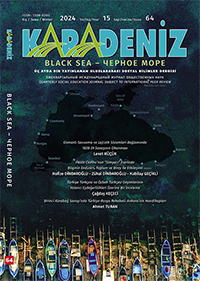TÜRKİYE TÜRKÇESİ VE ÖZBEK TÜRKÇESİ DEYİMLERİNİN YALANCI EŞDEĞERLİLİKLERİ ÜZERİNE BİR İNCELEME
A STUDY ON THE FALSE EQUIVALENCE OF TÜRKİYE TURKISH AND UZBEK TURKISH IDIOMS
Author(s): Çağdaş KEÇECİSubject(s): Sociolinguistics, Translation Studies, Turkic languages
Published by: Kültür Ajans Tanıtım ve Organizasyon
Keywords: equivalence; exact false equivalence; idiom; linguistics; translation;
Summary/Abstract: Language contact introduces numerous concepts that gradually permeate the grammar and lexicon of a language. As a result of these interactions, some words may become entirely synonymous in meaning while still coexisting within the language. Over time, interlanguage relationships are enriched through mutual linguistic influence among various languages. However, these exchanges can also give rise to misunderstandings and confusion. Particularly, words that appear common or similar across languages may carry distinct meanings despite their apparent similarities in form. This phenomenon, referred to as “false equivalence” in linguistic terminology, occurs when words with similar spellings or pronunciations in two languages convey entirely different meanings. This article will explore the concept of false equivalence, analyze misunderstandings stemming from idiomatic expressions in Uzbek Turkish and Turkey Turkish, and examine these occurrences within the framework of their respective linguistic contexts.
Journal: Karadeniz Uluslararası Bilimsel Dergi
- Issue Year: 2024
- Issue No: 64
- Page Range: 25-32
- Page Count: 8
- Language: Turkish

